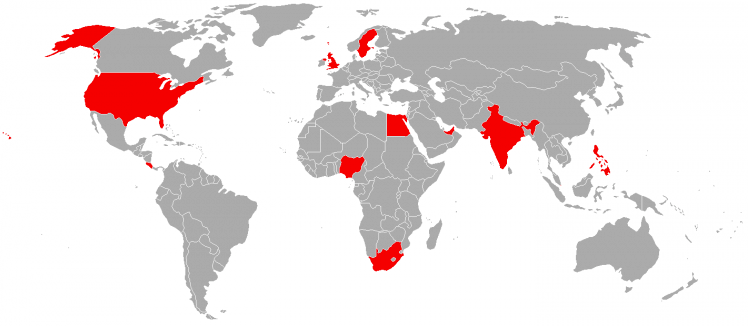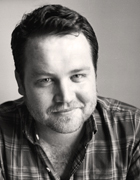Angry Young Men: Creative Approaches to Hamlet, Catcher in the Rye, and the First-Person Narrative (St. Petersburg, Russia)
Course Description
In Spring 2013, the IWP Distance Learning Program will open an introductory creative writing course for high school students in partnership with SAAS (Slavic Anglo American School) Marina in Saint Petersburg, Russia. Led by a Distance Learning instructor, students will study texts and produce writing in poetry, fiction, and nonfiction during a five-week course. For Fall 2013, SAAS Marina and the IWP have created a second creative writing and critical analysis course. This ten-week course, conducted over Skype, with supporting materials on Lore, will provide students at SAAS Marina with an opportunity for further creative explorations of English and American literature.
Be it in the form of a play, novel, short story, or poem, literature presents threads to untangle and mysteries to solve. As an art form, it has the power to simultaneously illuminate and change reality. In this course, students will examine the many tools writers use to communicate meaning. Students will also explore the various ways they might employ such tools in their own writing, with particular focus on voice development and clarity of expression.
Through both class discussion and creative writing exercises, students will gain a greater understanding of the themes and conflicts at-play in William Shakepeare's Hamlet, J.D. Salinger's Catcher in the Rye, and stories by Junot Diaz and George Saunders, among others. The instructor, Iowa Writers' Workshop graduate Deborah Kennedy, will provide weekly in-class creative writing prompts inspired by the reading material. Students will then be expected to complete such assignments prior to the next class meeting. They will also be asked to engage with the reading material outside of class and to come prepared to discuss assigned questions prepared by the instructor. The course will offer students the opportunity to engage both critically and creatively with the texts in order to become knowledgeable readers and proficient writers.
Instructor
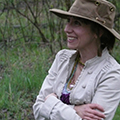
Deborah KENNEDY recently earned an MFA in fiction writing from the University of Iowa Writers' Workshop and also holds an MA in fiction writing and English Literature from Miami University. Her work has appeared in Third Coast Magazine, Sou'wester, The North American Review, and Salon. For the last 14 years, she has taught literature, composition, and creative writing. She has also volunteered as a mentor for Big Brothers/Big Sisters since 2006. She served as the editor of Oxford Magazine at Miami University and the editor of Kennings at Hanover College. Deborah currently lives in Portland, Oregon.
Longing, We Say: Distance in the Literary Imagination (Kirkuk, Iraq)
Course Description
In Spring 2013, the IWP Distance Learning Program's Creative Writing Series in Baghdad, Iraq, came to a close. Based on the success of the project, the IWP Distance Learning Program has partnered with the U.S. Consulate General in Erbil and the U.S. Embassy in Baghdad to create a new introductory course in creative writing for students and professors at the University of Kirkuk. Conducted via Blackboard Collaborate with supporting materials provided via Lore, class sessions will begin in mid-October and will conclude in February 2014. The course curriculum is divided between fiction and poetry.
In this course, the instructors and participants will explore the role of distance in the literary imagination. In day-to-day life, distance can be an impediment to knowledge, but in literature distance presents an opportunity to the imagination. What we cannot see, we must envision. Where we cannot go, we must project ourselves. This is true for both readers and creative writers. Over five months, participants will consider many forms of distance: distance in space, distance in time, the subtler distances that divide our individual experiences of the world. This course will study how poets and fiction writers address these divides—how they overcome them, celebrate them, reveal them, lament them. And participants will venture into the distance with their own short stories and poems. Class sessions will include thoughtful examination of the readings and collaborative workshopping of participants' writing. Writers and readers of all abilities will be challenged.
Prose readings include excerpts from: Invisible Cities and “The Light-Years” by Italo Calvino; So Long, See You Tomorrow by William Maxwell; “The Blue of Distance” by Rebecca Solnit; “The Ones Who Walk Away from Omelas” by Ursula K. LeGuin; and “Funes the Memorious” by Jorge Luis Borges. Readings in poetry will begin with popular American ballads and follow that tradition into the twenty-first century through the poems of Emily Dickinson, Marianne Moore, George Oppen, James Tate, Robert Haas, and Anne Carson.
Instructor for Fiction
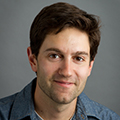
Mark MAYER is the Robert P. Dana Emerging Writer Fellow at Cornell College. A former Teaching-Writing Fellow at the Iowa Writers’ Workshop, he is winner of the John Leggett Fiction Prize and the Donald Justice Poetry Prize. His fiction has been nominated for Pushcart Prizes and anthologized in New Stories from the Midwest.
Instructor for Poetry
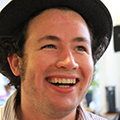
James LONGLEY is a graduate of the Iowa Writers' Workshop, where he taught general education literature and creative writing courses. He has served as coordinator of teaching assistants for the Iowa Writers' Workshop and was a recipient of the Donald Justice Poetry Prize. He co-edits LVNG, a journal of poetry and art, and his poems have appeared or are forthcoming in SET, The American Poetry Journal, and at petripress.org.
Advanced Poetry Seminar
Course Description
“The purpose of poetry is to remind us
how difficult it is to remain just one person,
for our house is open,
there are no keys in the doors,
and invisible guests come in and out at will.”
– Czeslaw Milosz, “Ars Poetica”
In this course, we’ll greet the many “invisible guests” who populate the houses of our poems and ourselves. We’ll have conversations with them. We’ll pit them against one another in fierce debates. We’ll play wild Charades with them. We’ll wonder if they all can get along at our party. Readings for the course will focus on the modern and contemporary, but may include pop-in visits by the likes of Sappho, Rumi, Basho, Dickinson, and others. Nearer poets may include Inger Christensen, Jorie Graham, Tomas Tranströmer, Simon Armitage, Wislawa Szymborska, James Dickey, and Lucille Clifton. Weekly writing prompts will exercise students’ engagement with the poets and poetries at hand, and written feedback will mark their progress.
Participants
Fifteen poets hailing from Bahrain, Colombia, France, India, Italy, Kuwait, Mauritius, Mexico, Uganda, and Vietnam will participate in the seminar, selected from among a pool of eighty-seven applicants representing twenty-six countries.
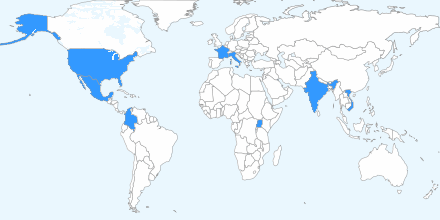
Instructor
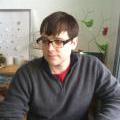
Micah BATEMAN is a graduate of the Iowa Writers’ Workshop and a recipient of the Poetry Society of America’s Lyric Poetry Award. His work has been shortlisted for Salt Publishing’s Crashaw Prize and appears in the Boston Review, Cutbank, Denver Quarterly, New York Quarterly, and Verse, among others. He has taught poetry and literature courses at the University of Iowa as a workshop student and as a Postgraduate Provost’s Fellow in Poetry. He is currently the editor of PetriPress.org, an online poetry journal.
Poetry Master Class
Course Description
Once you’ve written the first draft of a poem, what happens next? In this poetry workshop, we will study diverse examples of radical revision, ranging from Walt Whitman’s obsessive reconsiderations of Leaves of Grass to Elizabeth Bishop’s drafts of “One Art.” Additionally, we will expand the definition of revision to include alternative editing strategies culled from the likes of Frank O’Hara, Robert Hass, Lyn Hejinian, and Srikanth Reddy. We will actively use workshop participants’ poems as generators for new writing. As each drafting of a piece is an opportunity to rethink its destination, the class will forego mere tinkering in an effort to offer each work presented for workshop profound opportunities to transform its very strategies, meanings, and intentions. Deeply and generously inhabiting one another’s work, participants will be encouraged to offer inspired exercises that challenge one another’s visions. With an open mind, we will embrace all kinds of revision exercises, including chance operations, pointed research assignments, the investigation of outtakes and omissions, formal challenges, sonic dares, and all uppings of the poetic ante that kindle the reinvigoration of the creative act. We will write new work each week.
Participants
Fifteen poets hailing from Argentina, Bangladesh, Germany, India, Kenya, Burma/Myanmar, New Zealand, and the United States will participate in the master class. Participants were selected from among a large pool of highly-qualified applicants representing twenty-three countries.
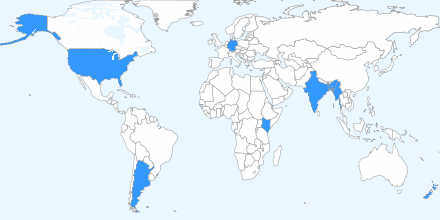
Instructor
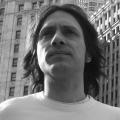
Nick TWEMLOW is a poet and filmmaker from Topeka, Kansas and a graduate of the Iowa Writers’ Workshop. In 2013, his poetry collection Palm Trees (Green Lantern Press) received the Poetry Society of America’s Norma Farber First Book Award. In addition to writing poetry, Twemlow is an accomplished filmmaker and a 2011 recipient of a Princess Grace Honorarium in Filmmaking. His films have been shown at a number of festivals, including Tribeca, South by Southwest, and Slam Dance. He is currently a Senior Editor of The Iowa Review and a co-editor of Canarium Books, a small press publisher of contemporary poetry.
Virtual Poetry Seminar
Course Description
"The world is a mist," writes Elizabeth Bishop, "And then the world is / minute and vast and clear." In this poetry course we will examine the world in its simultaneous mist and clarity. We will embrace poetry's embrace of the contradictory, the mysterious, the shifting, the irrational. We will read modern and contemporary poems that convey complex experience through a wide range of formal strategies, discovering and discussing the different modes of thought that poems' differing modalities inspire. Readings will include poems from Francis Ponge, Gertrude Stein, Elizabeth Bishop, Michael Palmer, among others. Weekly writing exercises will be designed to broaden the scope of each student's poetry and to generate vivid new work through formal, rhythmic, and imagistic discovery. Students will receive regular feedback on their writing.
Participants
Fifteen poets hailing from Canada, China, India, the Netherlands, New Zealand, the Philippines, Saudi Arabia, and the United States took part in the seminar. Participants were selected from among a pool of nearly 150 applicants representing twenty-eight countries.
Instructor
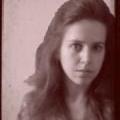
Margaret ROSS is a graduate of Harvard University and the Iowa Writers’ Workshop. Her work has appeared or is forthcoming in the Boston Review, Colorado Review, Denver Quarterly, Fence, Iowa Review, and Volt. She has taught poetry courses at the University of Iowa as a third-year teaching fellow and most recently at Cornell College.
Introduction to Creative Writing & Contemporary American Literature (Hargeisa, Somalia)
Course Description
In partnership with Hargeisa University, the IWP Distance Learning Program will offer a six-week online creative writing and literature course from February 21 to March 11, 2013. The course is designed for emerging writers of college age. Structurally, the course will be divided evenly between fiction and poetry, with six sessions allotted to each genre. The course will feature lectures on and discussion of contemporary American poetry and fiction to guide practice-based writing exercises. Readings and texts will be selected with an eye towards contemporary works published in established American literary journals such as Witness, Threepenny Review, The Collagist, and Narrative and include such topics as immigration narrative and cross-cultural exploration. Short readings, responses, and writing exercises will be assigned weekly to facilitate discussion for live sessions between students at the University of Iowa (Iowa City, USA) and Hargeisa University (Hargeisa, Somalia).
Instructors
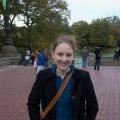
Rae WINKELSTEIN-DUVENECK graduated from the Iowa Writers’ Workshop in 2012. She has taught creative writing and rhetoric courses at the University of Iowa and worked as a Poetry Editor for The Iowa Review in 2011. Publications include poems in the Lana Turner Journal and Strange Cage and articles in The Iowa Review and The Albany Journal.

Mark MAYER is the Robert P. Dana Emerging Writer Fellow at Cornell College. A former Teaching-Writing Fellow at the Iowa Writers’ Workshop, he is winner of the John Leggett Fiction Prize and the Donald Justice Poetry Prize. His fiction has been nominated for Pushcart Prizes and anthologized in New Stories from the Midwest.
Introduction to Creative Writing (St. Petersburg, Russia)
Course Description
In partnership with SAAS (Slavic Anglo American School) Marina in St. Petersburg, Russia, IWP Distance Learning (DL) will create an introductory creative writing course, sampling both American poetry and short fiction, for 7th – 10th grade high school students enrolled at the school. The course will run from March 13 through April 17, 2013. Iowa Writers’ Worskhop alum and fellow Sara Akant will lead five, hour-long sessions, which are scheduled over the course of six weeks. Sessions will be conducted via Skype and Blue Jeans Network, a program that facilitates multiple video users. The course website Lore will be used in conjunction with the live sessions to post reading and writing assignments. Structurally, the course includes two sessions on fiction, one session on multi-genre literature (prose poems) and two sessions on poetry. During class, students will discuss the assigned reading with the instructor and will complete multiple in-class writing exercises based on the reading. Akant will provide individual feedback on writing assignments via email. The intent of the course is to offer students the chance to discuss literature and write their own prose and poetry in English.
Instructors
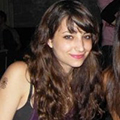
Sara AKANT received her MFA in Poetry from the Iowa Writers’ Workshop and is currently teaching creative writing at the University of Iowa as the Postgraduate Provost Fellow in Poetry. Her work has appeared in Super Arrow, Petri Press, and Wag’s Revue, among others.
LGBT Reading Group (Iowa City, USA | Glasgow, Scotland)
Exchange Description
The International Writing Program at the University of Iowa and the Glasgow University LGBT Students’ Association will collaborate to form a monthly online reading group, connecting LGBT communities in Iowa City and Glasgow, Scotland. The group will engage in four live, online discussions held monthly, from February 28 to May 2, 2013. In addition to the monthly meetings, two readings and Q&A sessions with American novelist Justin Torres and Scottish fiction writer Zoe Strachan will be scheduled. Iowa Workshop alumna Stephanie Goehring will be the group’s Iowa City coordinator, while former IWP resident and Scottish novelist Louise Welsh will facilitate from Glasgow, Scotland. The Blue Jean Network will allow the Iowa City group to use the DVC facilities at the University of Iowa to connect to the students in Glasgow, who will connect via Skype. Each session will be 1.5 hours in duration. Books discussed during the reading group will include both American and Scottish literature and address LGBT themes or issues in some way. Justin Torres’ We the Animals, Zoe Strachan’s Negative Space, and a compiled packet of American and Scottish poetry are selected to be read and discussed throughout the four-month reading group. The Distance Learning Coordinator will also create a closed Facebook group so students can post questions, thoughts about the readings, and access updates on Q&A events.
Facilitators
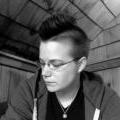
Stephanie GOEHRING graduated from the Iowa Writers’ Workshop in Poetry in 2012 and has taught literature courses at the University of Iowa for the last three years. She has two published poetry chapbooks, This Room Has a Ghost and I Miss You Very Much.
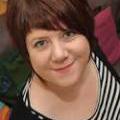
Louise WELSH is a fiction writer from Scotland and a 2010 IWP resident. She has published five novels and is the recipient of numerous literary awards, including the Saltire First Book Prize and the City of Glasgow Lord Provost’s Award for Literature.
Virtual Writing Project (Iowa City, USA | East Jerusalem, Israel)
Exchange Description
Arriving at each new city, the traveler finds again a past of his that he did not know he had" — Italo Calvino, Invisible Cities. What is the oldest object you own? What is the strangest? Is it beautiful? Is it visible? Is there a story behind that picture? In this six-week online course, we shared our cities and pasts by generating writing inspired by the artifacts that construct our present, arriving together at a newly imagined city we’ll call the future. During each week’s hour-and-a-half long meeting, University of Iowa students engaged in creative online mentorship with young writers at the Dar al-Tifl high school in East Jerusalem. They participated in group-wide discussions and exercises and engaged in one-on-one collaborations and writing exchanges. We experimented with poetry, prose, memoir, drama, interview, and the photo-essay. In between meetings, we shared our writing through Twitter, Tumblr, the University of Iowa digital message boards, and the postal service. The class culminated in a public reading and in the creation of an online literary magazine.
Facilitator

Margaret ROSS is a graduate of Harvard University and the Iowa Writers’ Workshop. Her work has appeared or is forthcoming in the Boston Review, Colorado Review, Denver Quarterly, Fence, Iowa Review, and Volt. She has taught poetry courses at the University of Iowa as a third-year teaching fellow and most recently at Cornell College.
